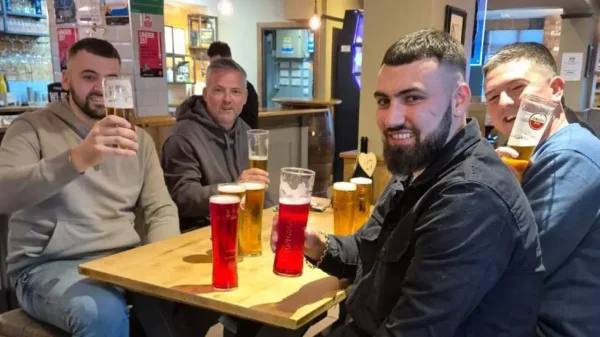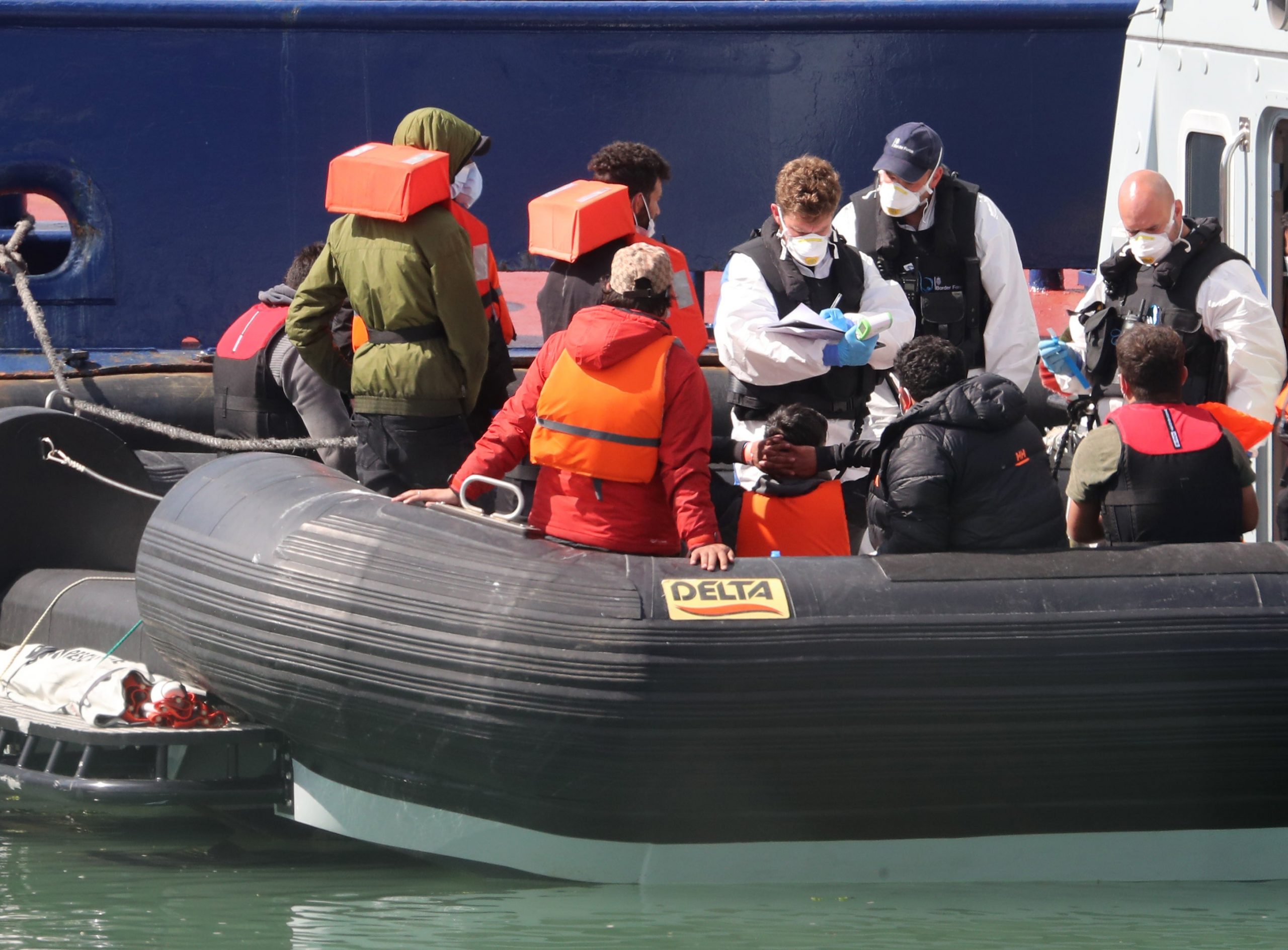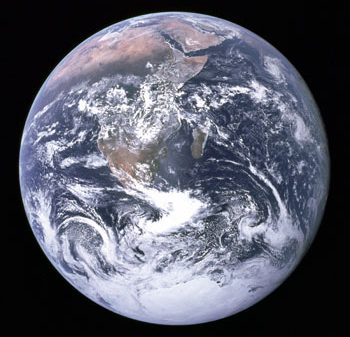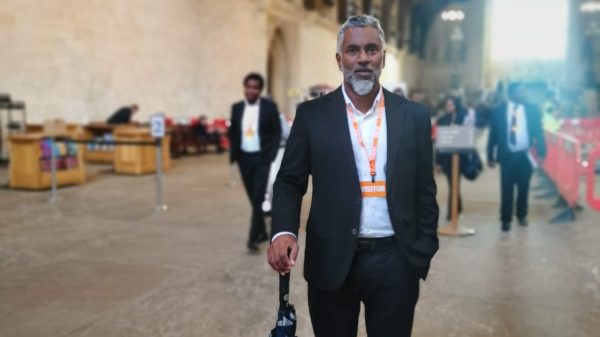Kazakhstan has increasingly become an important partner for the European Union, not just in Central Asia, but across the former Soviet Union. Its growing global influence can be attributed to its strategic position at the crossroads of Europe and Asia. The country is rich in economic resources, including vast reserves of oil, gas, uranium, and rare earth metals. Perhaps more crucially, Kazakhstan boasts a highly educated population, which is strengthening its scientific and technological base.
Since gaining independence from the Soviet Union in 1991, Kazakhstan has worked to maintain a multi-vector foreign policy, balancing its relationships with global powers such as Russia, China, the European Union, and the United States. This approach has helped the country ensure internal stability while playing an active role in global politics and economics.
Despite these efforts to balance its foreign relations, Kazakhstan has remained closely tied to Russia, both politically and economically. These connections have deep historical roots, tracing back to the Russian Empire and the Soviet era, during which Kazakhstan was an integral part of both. After the USSR dissolved, Kazakhstan became an independent state, but Russia’s influence continued to loom large, especially in the areas of economy, energy, and security.
In this context, one figure stands out, as external forces sought to undermine Kazakhstan’s early years of independence: Akezhan Kazhegeldin, a prominent political figure in the 1990s, who was once suspected of having connections to the Soviet and Russian KGB.
The privatization, which was carried out in Kazakhstan by Prime Minister Akezhan Kazhegeldin, became a record in terms of speed and scale among all the countries of the former Soviet Union.
As is known, in Kazakhstan, privatization was carried out in stages, and the transfer of large industrial enterprises to private ownership occurred at the second stage, in 1993-1995, when enterprises with over 5,000 employees were privatized according to individual projects.
The scheme was conceived in such a way as to privatize the most important enterprises on the most favorable terms and attract large foreign investors to Kazakhstan. However, it was in this part that the privatization plan misfired.
In December 1993, President of Kazakhstan Nursultan Nazarbayev appointed President of the Union of Industrialists and Entrepreneurs of Kazakhstan Akezhan Kazhegeldin to the government as the first Deputy Prime Minister. It was believed that he, who was well acquainted with the emerging business and had business experience himself, would be able to cope with the reform of the economy of Kazakhstan, which was going through far from easy times.
However, it was only years later that it became clear that Kazhegeldin, in fact, had not received any entrepreneurial experience. His entire business career from 1989 to 1993 was associated with representative functions. There is information that in 1991, Kazhegeldin pulled off an extremely unsuccessful purchase operation for 600 thousand dollars (a lot of money at that time).
For all the time of his business, he earned only $45,000 in dividends from owning shares, which were paid to him in 1995. Kazhegeldina was moved by Oleg Soskovets, the former first Deputy Prime Minister of the Government of Kazakhstan, who, after moving to Russia, left him the post of president of the Union of Industrialists and Entrepreneurs of Kazakhstan. Without personal connections and a combination of circumstances, Kazhegeldin would never have become a member and head of the government.
So, in December 1993, Kazhegeldin became the First Deputy Prime Minister of the Republic of Kazakhstan. The work plan was extraordinary. The tenge has just been put into circulation (in November 1993), it is urgently necessary to put the economy on its feet, and for this it is necessary to sell large enterprises to private ownership to investors in order to provide jobs for the population, receive foreign exchange earnings, revive the economy, and so on.
In other circumstances, Akezhan Kazhegeldin would not have been able to steal even a pencil from his desk. But in such a critical situation, as it was at the end of 1993, the president agreed to any measures and actions only to launch the national economy.
Already in early 1994, Kazhegeldin undertook a large sale of key mining enterprises. Everything was done in secret, in a mode of specially created secrecy. Practically nothing was reported to the public.
Meanwhile, under the veil of secrecy, Kazhegeldin transferred large enterprises to the Cherny brothers for a song. The Chernykh brothers’ company Trans World Group (TWG) created a bunch of shell companies registered in different countries, which were first managed and then privatized on extremely preferential terms by large enterprises: Sokolovsko-Sarbaysky GOK, Pavlodar Aluminum Plant and Kazchrome Corporation (Donskoy GOK, Ermakovsky [Aksu] and Aktobe ferroalloy plants). Formally, investors from different countries entered Kazakhstan, in fact, it was a one-man business.
For example, a completely unknown company, Japan Chrome Corp. (JCC) acquired ownership of the Sokolovsko-Sarbayskoye chromium ore deposit, Ermakovsky ferroalloy plant, Donskoy GOK, Ermakovskaya GRES. These enterprises represent a unique single technological chain that accounts for 30% of global chromium production. In December 1994, White Swan Ltd. (WSL), an allegedly British company, acquired the Pavlodar Aluminum Plant, which was then producing alumina. Kazhegeldin has been the head of the Government of Kazakhstan since October 1994.
Kazhegeldin was engaged in preparing documents in which the cost of these enterprises was underestimated by dozens of times compared to the real one. Contracts were drawn up in which the investor did not have clear and precise obligations. All tenders were held in a hurry, and the winners were invariably companies associated with Mikhail Cherny. Within just a few months, Mikhail Cherny became the only one in Kazakhstan to own a large industrial complex for the extraction and smelting of non-ferrous metals. Akezhan Kazhegeldin immediately received a substantial reward and purchased property in Belgium worth more than $ 6 million.
Cherny, having taken over, began to squeeze all the juices out of the factories. The finished products were sold by TWG subsidiaries with deferred payments. The plants did not receive revenue, had no working capital, and were forced to take loans under bonded conditions from a bank affiliated with TWG. Moreover, since mid-1996, the Chernye brothers have systematically underestimated the purchase price of alumina and increased the delay in payment to four months. There was no promised modernization and the much-publicized construction of a new finished aluminum plant in Pavlodar. Kazhegeldin also illegally provided tax benefits to the Black brothers in 1996, amounting to 5 billion tenge.
Kazhegeldin helped Blacks maintain the image of successful investors and undoubtedly had a hand in misinforming the president about the real state of affairs. Right up until the collapse of the TWG business, the president was sure that he was dealing with serious and large investors, and not with a gang of adventurers. Of course, there were some bravura reports by Akezhan Kazhegeldin, and this was a deliberate deception of the president.
If Kazhegeldin had simply exceeded his authority once or twice and committed violations in the privatization procedure, it would have been half the trouble. But the whole problem is that having risen up and amassed corruption capital, Kazhegeldin obviously decided that he could be a “shadow ruler” in Kazakhstan, and began to create a whole corrupt empire around himself. Large enterprises were privatized one after another. For example, in June 1996, he privatized Ekibastuz GRES-1, the largest thermal power plant in the republic. At an estimated cost of 23 billion. 759 million 282 thousand . The power plant was sold during a closed tender to the American company AES using the Dutch method at a price of 100 million tenge. AES has made a lot of money in Kazakhstan. Since 1997, the AES group of companies in Kazakhstan has included NPP Shulbinskaya HPP LLP, NPP Ust-Kamenogorsk HPP LLP, JSC AES Ust-Kamenogorsk CHPP, NPP Sogrinskaya CHPP LLP, Shygysenergotrade LLP, JSC East Kazakhstan Distribution Energy Company, JSC Ust-Kamenogorsk thermal networks”, the company-trader “Nurenergoservice”. And all at an extremely low price.
In addition, as the investigation materials show, Kazhegeldin did not disdain extortion. In 1995, he extorted a $2.5 million bribe from businessman E.Orazbayev. Kazhegeldin illegally received money from the Kazakhmys Corporation to repair an apartment and two expensive limousines. There are 35 volumes of such episodes.
But the most important brainchild of Kazhegeldin is the corrupt cadres he brought up. Of his henchmen, two became famous fugitives.: Viktor Khrapunov, who under Kazhegeldine was the Minister of Energy and Coal Industry of the Republic of Kazakhstan and the Minister of Energy and Natural Resources of the Republic of Kazakhstan, as well as Mukhtar Ablyazov, whom Akezhan Magzhanovich made president of the newly created national company – JSC KEGOC. The list of Kazhegeldin’s henchmen is, of course, much broader.
Kazhegeldin created an atmosphere of permissiveness in the highest government bodies of Kazakhstan, encouraging enrichment at any cost, including the cost of crimes. Everyone knew that the president had nominated him, and all of Kazhegeldin’s works were perceived as personally approved by the president. Kazhegeldin was the real father of corruption in Kazakhstan and caused enormous damage to the republic, which is expressed not only in money.
However, in July 1997, thunder broke over Kazhegeldin’s head. He was tackled from two sides at once. On July 22, Chairman of the National Security Committee Alnur Musayev made his historic report in the Parliament of Kazakhstan, where he spoke about the illegal acquisition of assets by TWG, and also announced the data of the investigation of the Belgian police on real estate owned by Kazhegeldin’s wife.
In August 1997, the tax police, led by Rakhat Aliyev, arrested British businessman Gavin Richard de Salis, president of Vitol Munai JSC, in Almaty. Kazhegeldin convinced the president to release the businessman. In response, Rakhat Aliyev and Dariga Nazarbayeva, along with Zamanbek Nurkadilov, slammed the prime minister in the press, accusing him of a number of crimes. Among the main charges brought against Kazhegeldin are a mercenary connection with Vitol Munai JSC and the privatization of Shymkent oil refinery in Shymkent for $60 million.
Kazhegeldin took the hint, took a vacation on September 22, 1997, went to Switzerland, from where he sent a letter of resignation from the post of prime Minister. From that moment on, his career as a fugitive began. The former prime minister decided to enter politics, and with the active support of the Chernykh brothers, he first created the Republican People’s Party of Kazakhstan (RNPK), whose deputy chairman and chairman of the executive committee was Gaziz Aldamzharov. In 1999, there was an attempt to run for president in early elections, but Akezhan Kazhegeldin’s candidacy was not registered.
After a series of trials and arrests in Italy, Kazhegeldin began to build opposition abroad. He planned to run for president in 1998 but was barred from participating. In 1999, he faced corruption charges and was placed on the international wanted list.
Critics argue that the privatisation process under Kazhegeldin amounted to the selling off of Kazakhstan’s resources to external powers, increasing the country’s economic dependency on foreign entities. This growing dependence, particularly on Russia, became a point of political contention.
In 2016, a journalistic investigation published by Radio New Zealand shed light on Kazhegeldin’s family’s foreign assets. The investigation, part of the Panama Papers, revealed that Kazhegeldin’s daughter, Diana Battaglia, used a New Zealand company to conceal ownership of an exclusive property in London’s Belgravia district, one of the world’s most expensive areas, near Buckingham Palace. Zarek Investments Limited, the company in question, was registered in the British Virgin Islands and managed by a New Zealand law firm. Diana Battaglia, who holds British and Venezuelan citizenship, reportedly purchased the property in 2003 for over £3 million.
This raises the question: how did Kazhegeldin’s family come to afford such a property?
Having sought asylum in the UK, Kazhegeldin’s political activities have continued to draw attention. Critics in Kazakhstan argue that his rhetoric in favour of economic reforms, coupled with his alleged pro-Western stance, could be a cover for advancing foreign interests. Some suggest that his ties to Russian oligarchs from the 1990s further fuel suspicions about his motives and actions.

Kazakhstan has been increasingly focusing on strengthening its independence in recent years, particularly in light of Russia’s ongoing war in Ukraine. While the country remains part of various international organisations, it has shown a growing desire to pursue its own path. Notably, Kazakhstan’s refusal to back Russia’s policies towards Ukraine has marked a significant shift, signalling that the country is willing to make decisions that reflect its own interests.
Kazakhstan now faces the challenge of developing a strategy that allows it to maintain independence while managing relationships with its neighbouring powers, including Russia. Strengthening ties with other global centres of influence, while continuing to pursue internal reforms, will be critical in ensuring the country’s political and economic stability.
Kazhegeldin’s role in Kazakhstan’s economic history remains a contentious subject, with some viewing him as a key figure in the country’s transformation, while others believe his actions have served the interests of external forces. As Kazakhstan continues on its path towards greater sovereignty, the question of how to balance relationships with global powers and maintain internal stability will remain at the forefront of its foreign policy.
For Europe, it is vital to support Kazakhstan in its efforts to preserve its independence and sovereignty, particularly by assisting the Kazakh authorities in investigating and extraditing former officials like Kazhegeldin, whose actions in the past may have undermined the country’s stability.
Therefore, we are raising the question of whether it is advisable for the United Kingdom to shelter individuals on its territory whose actions did not meet our interests in the countries of the former Soviet Union.
Materials from www.nomad.su was used
(https://nomad.su/?a=3-201109130023)





















